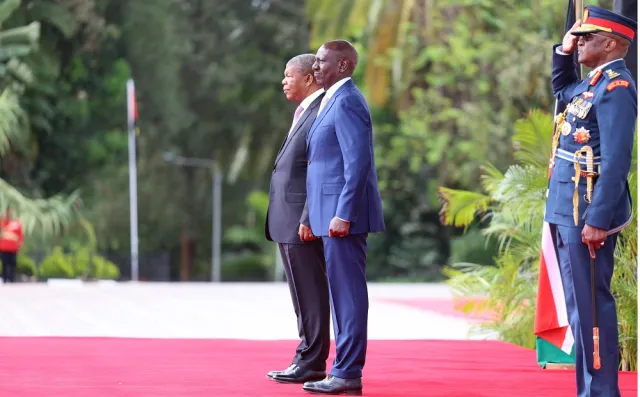Kenya has abolished visa requirements for Angolans in efforts to spur trade.
President Ruto made the announcement Saturday during a joint presser with visiting Angolan President Joao Lourenco at State House.
He said the move would increase trade numbers between the two countries by easing the movement of people, goods and services.
He said the trade numbers between the two nations had in the last four years gone up from 60 million to 350 million.
Additionally, the President pledged to expedite and conclude discussions on resumption of direct flights to Angola.
“We believe there is tremendous potential and scope for the numbers to go up into billions and we have undertaken to facilitate these exercises by making sure that they are not bilateral agreements but improve connections to facilitate greater integration” the President committed.
Kenya and Angola have signed 11 bilateral agreements.
This is the first-ever trip by an Angolan President to Kenya.
“I thank you (Joao Lourenco) for making this inaugural visit, the first by an Angolan Head of State in the history of the two countries. Your Excellency (Joao Lourenco) you have corrected an anomaly that has existed close to 40 years that Kenya and Angola share a rich history “ he said.
Angola is expected to implement a reciprocal visa waiver. More to follow.. By Margaret Kalekye, KBC






